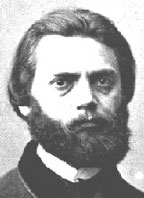Biography

Source: Le Monde Illustré, February 21,1885;
Translated: for marxists.org by Mitch Abidor;
CopyLeft: Creative Commons (Attribute & ShareAlike) marxists.org 2004.
Jules Vallès died Saturday February 14. Born in Puy (Haute-Loire) June 11,1832, he was thus not yet 52 years old. The great interest of his life was politics, yet it will be literature that will perpetuate his memory. A talented writer, Jules Vallès leaves behind a series of remarkable books, full of a biting and bitter verve that put him in the highest ranks among writers. Collaborator at various times on the Revue Européene and L'époque, he founded La Rue, went to Le Figaro and L'évenement and unsuccessfully tried his hand at the theatre. He was very much in evidence after the proclamation of the Commune. The last barricade taken, he managed to hide in Paris until the day when, thanks to a passport, he took refuge in England, passing through Belgium. Upon returning to Paris after the amnesty he began again to engage in political journalism. Thanks to his name Le Cri du Peuple had managed to arrive at a large circulation.
The burial of Jules Vallès took place Monday February 16 at noon. The body was carried to Père-Lachaise. Around 10,000 squeezed around the funeral home at 77 Boulevard Saint-Michel. Along the way several fights broke out upon the sight on the wreaths offered by the German socialists. Several lively altercations occurred.
The appearance of the coffin was saluted with cries of: “Long Live the Commune! Long Live the Social Revolution! Long Live Anarchy!” Behind the hearse were the members of the family, Citizens Henri Rochefort, Révillon, Clovis Hugues, Laguerre, and the members of the Commune in Paris: Amouroux, Arnaud, Avrial, Champy, Cournet, Dereure, Dupont, Clovis Eudes, Gérardin,. Longuet, Malon, Marteret, Pottier, Régère, Urbain, Vaillant, Viard, etc. The delegations followed. Aside from the many wreaths on the funeral drape could be found Vallè Commune-member sash in red silk with gold fringes.. A large crowd awaited the cortege at the cemetery. M. Rochefort said a few words at the graveside. Several other personages spoke after him, and the crowd peacefully drifted away.